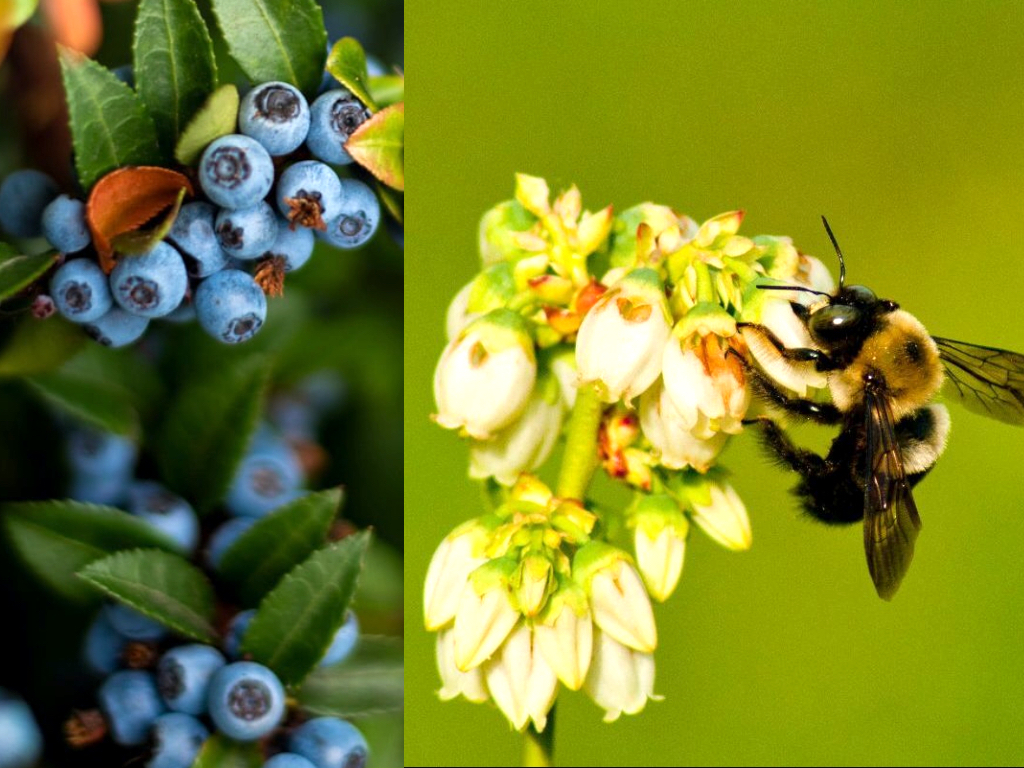3 Mins Read
New research shows that the loss of bees in agricultural areas is hampering the supply of a number of key food crops. Biodiversity experts have for years raised alarm bells over the consequences of continued decline in pollinators. The latest study shows that the loss of wild bees due to habitat destruction, pesticide use and the climate crisis could pose serious complications for global food security.
The U.S.-based study, published in the Proceedings of the Royal Society B, examined seven crops grown across a total of 131 crop fields in 13 states in the country. Surveying bee activity and crop abundance, researchers found that five crops had evidence that the lack of bees is limiting the amount of food that can be grown – these include apples, cherries and blueberries.
The team of scientists, hailing from Canada, Sweden and the U.S. found that wild native bees contribute a significant portion of the pollination even in intensively farmed areas. Species of wild bees, including bumblebees, have been experiencing sharp declines due to the loss of flowering habitat, the use of toxic pesticides and insecticides in intensive farming and the impacts of climate change.
The trends we are seeing now are setting us up for food security problems. We aren’t yet in a complete crisis now but the trends aren’t going in the right direction. Our study shows this isn’t a problem for 10 or 20 years from now – it’s happening right now.
Rachael Winfree, researcher from Rutgers University
“Our findings show that pollinator declines could translate directly into decreased yields or production for most of the crops studied, and that wild species contribute substantially to pollination of most study crops in major crop-producing regions,” wrote the authors of the paper.
Read: Why do vegans avoid honey & other important facts about nature’s pollinators
Wild bees are different from honeybees managed by beekeepers in commercial honey production, and are more effective pollinators. Almost three-quarters of the world’s food crops are dependent on pollinators like wild bees, and their suffering numbers could pose serious problems for global food security.
Fruit and vegetables are especially vulnerable because they rely on insects and other pollinators, while rice, wheat and corn are not affected by bee declines because they are wind pollinated.
Currently, many agricultural regions in the U.S. are relying on managed honeybees, deliberately shifted all over the country to meet the need for crop pollination. Almonds, for instance, which is one of the two crops shown not to be suffering from the loss of bees, in fact depend on the annual trucking beehives across the country to the almond-growing California.
Our findings show that pollinator declines could translate directly into decreased yields or production for most of the crops studied, and that wild species contribute substantially to pollination of most study crops in major crop-producing regions.
Reilly et al. (2020)
The scientists warn that action must be taken now to protect wild bee pollinators in order to protect the supply of fruit and vegetables, without which could lead to nutritional deficiencies and other public health implications.
“Given the evidence of widespread pollinator limitation, especially in tree fruits and blueberry, our results suggest that the adoption of practices that conserve or augment wild bees, such as wildflower enhancements and the use of alternative managed pollinators, is likely to be successful for increasing yields,” wrote the researchers.
“The trends we are seeing now are setting us up for food security problems,” Rachael Winfree from Rutgers University and one of the authors of the paper told the Guardian. “We aren’t yet in a complete crisis now but the trends aren’t going in the right direction. Our study shows this isn’t a problem for 10 or 20 years from now – it’s happening right now.”
In terms of what individuals can do, supporting organic farming, avoiding honey and participating in wild beekeeping, a form of regenerative agriculture are key actions that can help save pollinator populations such as bees and butterflies.
Lead image courtesy of Unsplash / ThinkStock / designed by Green Queen Media.




